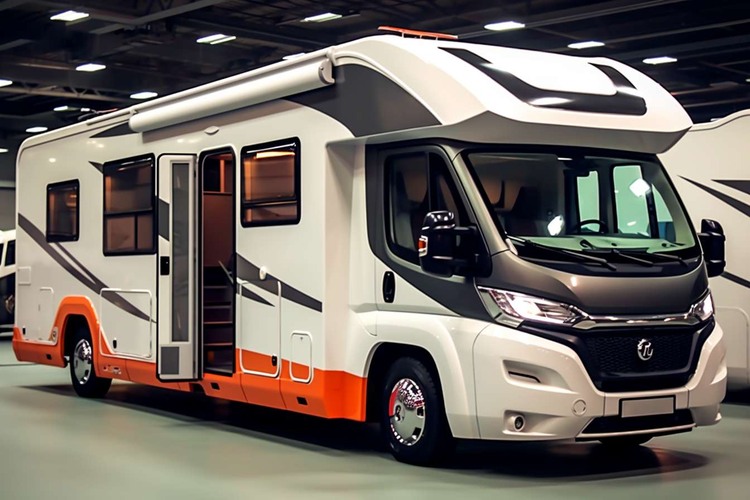Electric RVs and Campers: The Future of Sustainable Travel
The world of recreational vehicles is undergoing a revolutionary transformation with the emergence of electric RVs and campers. As environmental consciousness grows and technology advances, travelers are increasingly seeking eco-friendly, efficient alternatives to traditional fossil fuel-powered vehicles. Electric RVs represent a promising solution that combines comfort, sustainability, and cutting-edge technology for modern adventurers.

How do electric RVs provide superior comfort?
Electric RVs are designed to offer a luxurious and comfortable travel experience while incorporating sustainable technologies. These vehicles often feature advanced climate control systems, energy-efficient appliances, and smart home technologies that can be controlled remotely. The absence of a traditional combustion engine also results in a quieter ride, enhancing the overall comfort for passengers. Additionally, electric RVs typically have more spacious interiors due to the compact nature of electric drivetrains, allowing for innovative layout designs that maximize living space.
What amenities are included in RVs equipped with bathrooms?
Modern electric RVs and campers are equipped with well-designed bathrooms that rival those found in traditional homes. These compact yet functional spaces often include full-sized showers, eco-friendly toilets, and stylish vanities. Many models feature water-saving fixtures and advanced waste management systems to minimize environmental impact. Some high-end electric RVs even offer luxury touches like heated floors and smart mirrors, providing a spa-like experience on the road.
Which electric RV models are currently trending?
Several electric RV models have gained attention in recent years for their innovative features and sustainable design. The Winnebago e-RV concept has generated significant buzz, showcasing an all-electric powertrain integrated into a camper van platform. Another notable model is the Thor Vision Vehicle, which combines electric propulsion with hydrogen fuel cell technology for extended range. Start-ups like Lightship are also making waves with their aerodynamic, solar-powered travel trailers designed to be towed by electric vehicles.
Are electric RVs a cost-effective and flexible choice?
While the initial purchase price of electric RVs tends to be higher than their traditional counterparts, they can offer long-term cost savings. Electric RVs have lower fuel costs and require less maintenance due to their simpler drivetrains. However, it’s important to consider factors such as charging infrastructure availability and potential battery replacement costs when evaluating overall expenses.
What creative concepts are emerging in RV bathroom design?
RV bathroom design is evolving to meet the needs of modern travelers. Innovative concepts include transformable spaces that can expand when parked, utilizing smart glass technology for privacy, and incorporating multi-functional fixtures to maximize space efficiency. Some designs feature outdoor shower options for a more immersive nature experience, while others integrate advanced water recycling systems to minimize resource consumption.
How do electric RVs compare to traditional models in terms of features and costs?
Electric RVs offer unique features and potential long-term savings compared to traditional gas-powered models. However, they also come with different considerations in terms of range and charging infrastructure. Here’s a comparison of key aspects:
| Aspect | Electric RVs | Traditional RVs |
|---|---|---|
| Fuel Cost | Lower, based on electricity rates | Higher, dependent on gas prices |
| Maintenance | Generally lower due to fewer moving parts | Regular engine maintenance required |
| Range | Limited, typically 100-250 miles per charge | Longer, 300-400 miles per tank |
| Refueling Time | 30 minutes to several hours for charging | 5-10 minutes for gas fill-up |
| Environmental Impact | Lower emissions, more sustainable | Higher emissions from fossil fuels |
| Initial Cost | Higher upfront investment | Lower initial purchase price |
| Amenities | Often includes advanced tech features | Varies, but may have more traditional setups |
Prices, rates, or cost estimates mentioned in this article are based on the latest available information but may change over time. Independent research is advised before making financial decisions.
As technology advances and charging infrastructure expands, electric RVs and campers are poised to play a significant role in the future of sustainable travel. While challenges remain, such as limited range and charging availability in remote areas, the benefits of reduced emissions, lower operating costs, and innovative features make electric RVs an attractive option for environmentally conscious travelers. As the industry continues to evolve, we can expect to see further improvements in battery technology, charging speeds, and overall vehicle efficiency, making electric RVs an increasingly viable choice for those seeking to explore the world responsibly.




